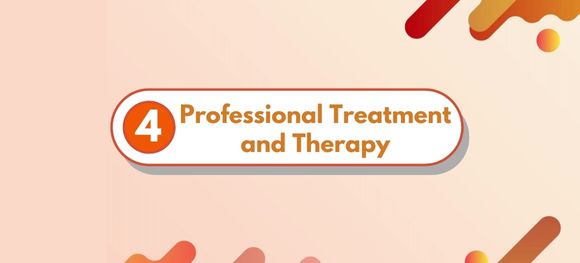Experiencing occasional feelings of sadness or being down is a natural part of life’s ups and downs. We all encounter disappointments, setbacks, and losses of various kinds. However, if these emotions persist for weeks or months and start to interfere with your ability to connect with others and enjoy life, it may be an indication of depression.
It is a mental health disorder characterized by persistent feelings of sadness, low mood, or a lack of interest and pleasure in daily activities that goes beyond the typical ups and downs of life and can significantly impact a person’s thoughts, emotions, behavior, and physical well-being.
Before knowing how to deal with depression, it is crucial to recognize that depression is treatable, including severe cases, and particularly when you have access to valuable information, medical professionals, and a supportive network.
Some of the most common signs of Depression are:-
- Persistent sadness or feeling down, even when there’s no apparent reason.
- Loss of interest or pleasure in activities that you once enjoyed.
- Feeling hopeless, helpless, or without a sense of purpose.
- Fatigue and lack of energy, making even simple tasks challenging.
- Sleep disturbances, such as insomnia or sleeping too much.
- Significant changes in appetite or weight, either loss or gain.
- Restlessness or irritability that affects daily interactions.
- Difficulty concentrating, making decisions, or remembering things.
- Feelings of worthlessness or excessive guilt over minor issues.
- Withdrawing from social activities and avoiding friends or family.
- Unexplained physical symptoms like aches or pains.
- Thoughts of self-harm or suicide, especially when the emotional pain feels overwhelming.
Dealing With Depression:-
Below are three distinct sets of intervention processes that can assist you in understanding how to deal with depression:
1. Lifestyle Changes

• Regular exercise: Engaging in physical activity can help alleviate symptoms of depression by releasing endorphins, which are natural mood boosters.
For example, going for a brisk walk in nature or attending a dance class can uplift your mood and reduce feelings of sadness.
• Balanced diet: Maintaining a healthy and nutritious diet can positively impact mood and overall well-being.
For example, incorporating omega-3 fatty acids found in fish or nuts can support brain health and reduce depressive symptoms.
• Sufficient sleep: Establishing a consistent sleep schedule and ensuring adequate rest is essential for dealing with depression.
For example, practicing relaxation techniques like deep breathing before bedtime can promote better sleep and improve overall mood.
• Cutting down on alcohol and other addictions: Limiting alcohol and drug consumption is crucial, as they can exacerbate depression symptoms.
For example, seeking alternative ways to deal with depression, such as engaging in hobbies or seeking support from friends, can reduce the temptation to turn to substances.
• Social support: Building and maintaining a strong support network can provide emotional assistance and alleviate feelings of isolation.
For example, reaching out to friends or family for a chat or participating in community activities can foster a sense of belonging and emotional connection.
2. Behavioral and Cognitive Changes

• Positive reinforcement: Positive reinforcement, as a component of behavioral activation, can be an effective approach for addressing depression. By integrating this strategy into your daily routine, you establish a system of rewards for engaging in activities that enhance your mood and overall well-being. This positive feedback loop helps setting realistic goals, uplifting your mood, fostering a sense of a more positive and fulfilling life.
For example, setting a goal to go for a short walk outside everyday and rewarding yourself with a relaxing bath afterward can provide a sense of accomplishment and pleasure.
• Cognitive restructuring: Identifying negative thought patterns and replacing them with more positive and realistic perspectives can lead to improved mood and outlook.
For example, if you catch yourself thinking, “I’m a failure because I made a mistake,” you can reframe it as, “Mistakes are a part of learning, and I can use this experience to grow and improve.”
• Stress management: Stress and depression can intertwine, as ongoing stress can exacerbate depressive symptoms, and the burden of depression can intensify the experience of stress. Learning healthy coping mechanisms for stress can play a vital role in managing depression effectively, breaking the cycle of negative emotions, and promoting overall well-being.
For example, incorporating deep breathing exercises or progressive muscle relaxation into your daily routine can help you manage stress more effectively.
• Mindfulness and meditation: Practicing mindfulness techniques can help increase self-awareness and reduce rumination and anxiety.
For example, taking a few minutes each day to engage in a mindfulness meditation, focusing on your breath and being present in the moment, can help calm the mind and promote emotional well-being.
3. Creative expression:
Engaging in creative activities, such as painting, writing, or playing music, can serve as a therapeutic outlet for emotions and thoughts.

For example, journaling about your feelings or playing a musical instrument can provide a sense of release and expression.
• Time in nature: Spending time outdoors and connecting with nature can positively impact mood and reduce stress.
For example, going for a hike in the woods or spending time at the beach can offer a sense of tranquility and rejuvenation.
Diagnosing Depression:
Recognizing the warning signs is crucial when it comes to diagnosing depression. If you are unsure whether you are experiencing signs of depression, consider taking the Depression Test..
Further, if you experience these symptoms persistently, it is better to seek professional help. A licensed psychologist or psychiatrist can conduct a thorough evaluation, considering your symptoms, medical history, and emotional well-being to determine if you meet the criteria for depression.
4. Professional Treatment and Therapy:

• Psychotherapy:
Various forms of psychotherapy offer valuable tools for dealing with depression and addressing underlying issues.
- Cognitive-behavioral therapy (CBT), for example, helps identify negative thought patterns and develop healthier coping strategies.
- Interpersonal therapy focuses on improving communication and relationships to alleviate depressive symptoms.
- Additionally, other types of therapy, such as psycho dynamic therapy, interpersonal therapy, and dialectical behavior therapy (DBT), focus on different aspects of emotional well-being and can be equally effective in helping individuals navigate their depression.
• Medication:
In some cases, healthcare professionals may prescribe antidepressant medication to help alleviate symptoms when other approaches are not sufficient.
For example, selective serotonin reuptake inhibitors (SSRIs) can be prescribed to regulate serotonin levels and improve mood, promoting a sense of stability and relief from depression.
• Alternative therapy:
Various forms of alternative therapy, including Yoga therapy, Relaxation training and expressive therapies like art, music, and dance movement therapy, offer valuable tools to deal with depression and addressing underlying issues. These diverse approaches offer emotional release and nonverbal exploration, promoting personalized healing and well-being.
For example, participating in a holistic healing workshop that includes yoga sessions to promote relaxation and reduce stress, music therapy to encourage emotional expression and connection, art therapy to explore emotions creatively, and dance movement therapy to release tension and foster a sense of embodiment. This integrated approach provides diverse outlets for self-expression on the journey towards dealing with depression.
• Support groups:
Participating in support groups or group therapy sessions can offer a sense of connection and understanding from others who have experienced similar struggles.
For example, Joining a support group with individuals who have overcome depression can provide hope and inspiration for your own journey. Sharing experiences and learning from others can foster a sense of belonging and reduce feelings of isolation.
• Regular check-ups:
Consistent follow-ups with healthcare professionals are vital to monitor progress and adjust treatment as needed.
For example, scheduling regular appointments with your therapist or doctor allows them to assess your response to treatment and make necessary adjustments.
Remember, you are not alone in your struggle with depression. By seeking support, implementing positive lifestyle changes, and exploring therapeutic options, you can greatly enhance your progress in understanding how to deal with depression effectively.
With the right assistance and commitment to self-care, there is hope for healing and a brighter future ahead. Reach out to the support network around you, and remember that help and support is always available to guide you towards a path of well-being and recovery.




